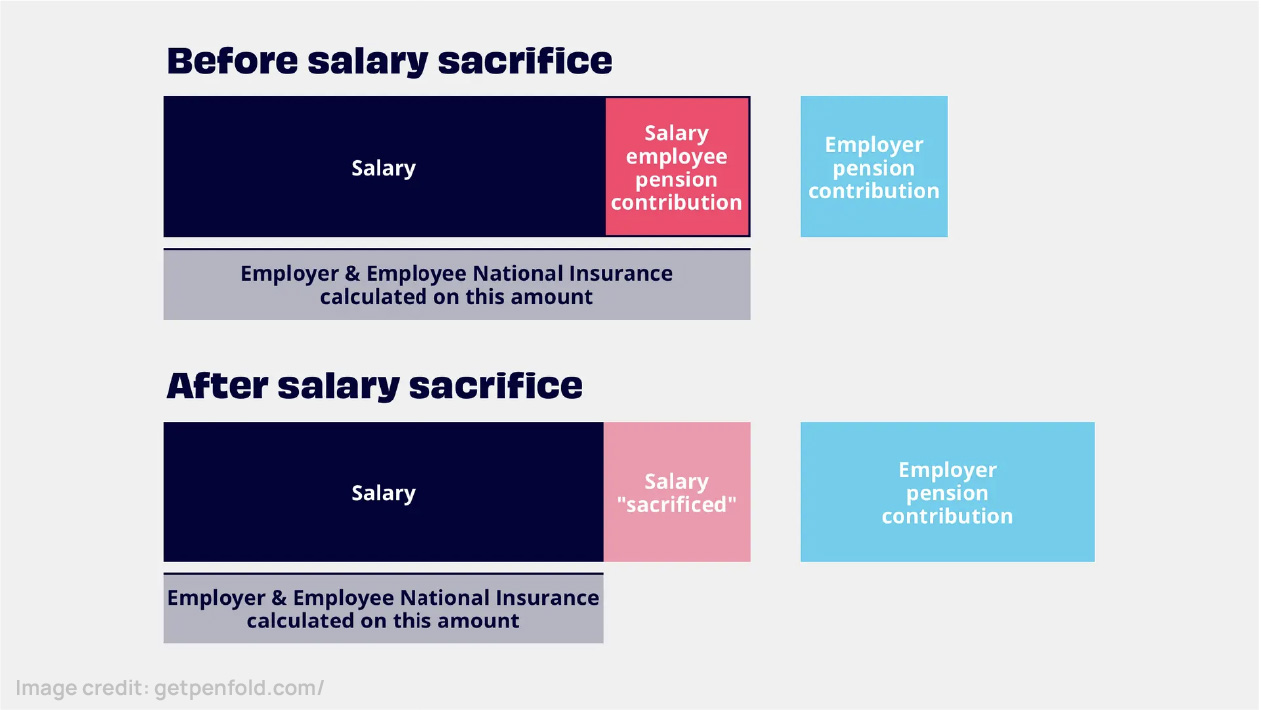
When it comes to employee benefits, the Salary Sacrifice Scheme stands out as a game-changer, particularly within the automotive industry. This innovative scheme offers employees the opportunity to exchange a portion of their pre-tax salary for non-cash benefits, with a significant focus on making vehicles more accessible, including the adoption of electric vehicles (EVs), through salary sacrifice programs.
As the automotive sector undergoes a profound shift driven by technological advancements and changing consumer preferences, the role of employee benefits in facilitating access to vehicles has become increasingly critical. Against this backdrop, the Salary Sacrifice Scheme emerges as a strategic tool for employers and employees alike, offering a pathway to affordable and sustainable mobility solutions.
This blog aims to explore intricacies of the Salary Sacrifice Scheme and its implications for the automotive industry. From understanding the implementation process to exploring the benefits for employers, employees, and the broader automotive ecosystem, we will discuss how salary sacrifice programs are reshaping the way vehicles are acquired, leased, and utilized in the modern workplace.
With a particular emphasis on the promotion of electric vehicles and sustainable transportation options, we will examine how salary sacrifice schemes are driving positive change and fostering innovation within the automotive sector. By highlighting real-world examples and practical insights, we aim to empower employers and employees to embrace the potential of salary sacrifice programs in making vehicles more accessible, affordable, and environmentally friendly.

Understanding the Salary Sacrifice Scheme
The Salary Sacrifice Scheme operates on the principle of exchanging a portion of an employee's pre-tax salary for non-cash benefits, such as the use of a vehicle, thereby reducing their taxable income. This concept has gained significant traction in various industries, including the automotive sector, as a means of offering employees affordable access to vehicles while providing employers with cost-saving opportunities and enhancing employee satisfaction.
In the automotive sector, the Salary Sacrifice Scheme typically involves employees leasing or renting vehicles through their employer, utilizing a portion of their pre-tax salary to cover the associated costs, although in many cases, employees can also avail the option to purchase a vehicle outright through salary sacrifice. This arrangement allows employees to access vehicles without the financial burden of upfront costs, depreciation, maintenance, or insurance, making it an attractive option for those seeking affordable and hassle-free mobility solutions.
The implementation process of the Salary Sacrifice Scheme in the automotive sector typically follows a structured approach. Employers partner with vehicle leasing companies or automotive dealerships to offer a range of vehicles to employees through salary sacrifice programs. Employees interested in participating in the scheme select a vehicle from the available options, taking into account factors such as budget, preferences, and usage requirements.
Once the vehicle selection is made, the employer and employee enter into a salary sacrifice agreement outlining the terms and conditions of the arrangement. This agreement specifies the amount of salary to be sacrificed, the duration of the lease or rental period, and any additional benefits or responsibilities associated with the scheme.
From a financial standpoint, the Salary Sacrifice Scheme offers several advantages for both employers and employees. For employees, the ability to lease or rent vehicles through pre-tax salary deductions can result in significant cost savings compared to traditional ownership or rental options. Furthermore, by spreading the cost of vehicle acquisition and maintenance over time, employees can enjoy greater financial flexibility and peace of mind.
For employers, the Salary Sacrifice Scheme presents an opportunity to enhance employee benefits packages, attract and retain top talent, and demonstrate a commitment to employee well-being and satisfaction. Additionally, by reducing employer National Insurance contributions and administrative overheads associated with traditional company car schemes, employers can achieve cost savings and improve overall financial efficiency.
The Salary Sacrifice Scheme offers a win-win solution for employers and employees in the automotive sector, providing affordable and convenient access to vehicles while delivering financial benefits and enhancing workplace satisfaction. By understanding the principles and processes of this scheme, employers and employees can unlock new opportunities for mobility and transportation solutions in the modern workplace.
Implementation Process
Implementing a salary sacrifice scheme for vehicle acquisition in the automotive industry requires careful planning, attention to detail, and effective communication with employees. Here's a step-by-step guide to navigating the implementation process, along with key considerations for employers:
- Assessing Feasibility and Suitability:
Conduct a thorough assessment to determine the feasibility and suitability of implementing a salary sacrifice scheme for vehicle acquisition within your organization.
Consider factors such as employee demographics, budget constraints, existing benefits packages, and organizational objectives to gauge the potential impact and relevance of the scheme.
- Legal and Financial Considerations:
Familiarize yourself with the legal and financial implications of implementing a salary sacrifice scheme, including compliance with tax regulations, employment laws, and accounting standards. Consult with legal and financial advisors to ensure that the scheme is structured appropriately and complies with regulatory requirements.
- Setting Up Agreements:
Develop comprehensive salary sacrifice agreements outlining the terms and conditions of the scheme, including details such as the amount of salary to be sacrificed, the duration of the agreement, and any additional benefits or obligations. Clearly communicate the terms of the agreement to employees, ensuring transparency and clarity regarding their rights, responsibilities, and entitlements.
- Partnering with Automotive Providers:
Establish partnerships with reputable automotive providers, such as vehicle leasing companies or automotive dealerships, to offer a range of vehicles to employees through the salary sacrifice scheme. Negotiate favorable terms and conditions with automotive providers, including pricing, vehicle selection, maintenance services, and insurance coverage, to maximize the value proposition for employees.
- Employee Communication and Engagement:
Launch a comprehensive communication and engagement strategy to promote awareness of the salary sacrifice scheme among employees and encourage participation. Provide educational resources, workshops, and personalized consultations to help employees understand the benefits, eligibility criteria, and process for participating in the scheme.
Benefits for Employers
Employers stand to gain several advantages from implementing a salary sacrifice scheme for vehicle acquisition, ranging from cost savings to enhanced employee satisfaction and potential tax advantages.
- Cost Savings:
Salary sacrifice schemes can result in significant cost savings for employers, particularly in terms of reduced National Insurance contributions (NICs). By structuring employee remuneration packages to include non-cash benefits like vehicle access, employers can lower their NICs liability, leading to tangible financial benefits. Additionally, salary sacrifice schemes can help reduce administrative overheads associated with traditional company car schemes. With fewer administrative tasks related to vehicle procurement, maintenance, and insurance, employers can streamline their operations and allocate resources more efficiently.
- Employee Retention and Attraction:
Offering attractive benefits like vehicle access through salary sacrifice schemes can play a crucial role in enhancing employer branding and recruitment efforts. In today's competitive job market, employees are increasingly prioritizing perks and benefits that enhance their quality of life and work-life balance.By providing employees with the opportunity to lease or rent vehicles through pre-tax salary deductions, employers can differentiate themselves as employers of choice and attract top talent. Moreover, offering flexible mobility solutions can contribute to higher levels of employee satisfaction and retention, reducing turnover costs and fostering a positive workplace culture.
- Potential Tax Advantages:
Employers offering salary sacrifice schemes may also benefit from potential tax advantages or incentives provided by government authorities. These tax incentives can vary depending on the jurisdiction and the specific nature of the scheme but may include exemptions, reliefs, or allowances that reduce the employer's tax liability. For example, in some regions, employers offering salary sacrifice schemes for electric vehicles (EVs) may be eligible for grants, subsidies, or tax credits aimed at promoting the adoption of eco-friendly transportation options. By leveraging these tax advantages, employers can further enhance the value proposition of their salary sacrifice schemes and maximize the return on investment.
In summary, salary sacrifice schemes offer employers a range of benefits, including cost savings, improved employee retention and attraction, and potential tax advantages. By leveraging these schemes strategically, employers can create a competitive advantage, enhance their employer brand, and drive organizational success in the dynamic and evolving landscape of employee benefits and compensation.
Benefits for Employees
Employees participating in a salary sacrifice scheme for vehicle acquisition stand to gain numerous advantages that enhance their mobility, financial well-being, and overall quality of life. Here's a closer look at the benefits they can enjoy:
- Access to Vehicles:
Perhaps the most significant advantage for employees is the opportunity to access vehicles through pre-tax salary deductions. By participating in a salary sacrifice scheme, employees can lease or rent vehicles at preferential rates, allowing them to enjoy the benefits of vehicle ownership without the financial burden of upfront costs or ongoing expenses.This access to vehicles enables employees to enjoy greater mobility and independence, whether for commuting to work, running errands, or pursuing leisure activities. With a diverse range of vehicles available through the scheme, employees can choose options that align with their preferences, lifestyle, and usage requirements, enhancing their overall satisfaction and convenience.
- Cost Savings:
Participating in a salary sacrifice scheme can lead to substantial cost savings for employees compared to traditional vehicle ownership or rental options. By spreading the cost of vehicle acquisition, maintenance, and running costs over time, employees can enjoy significant financial benefits and greater affordability.Through pre-tax salary deductions, employees can save money on vehicle-related expenses such as monthly lease payments, insurance premiums, servicing and maintenance costs, and fuel or charging expenses. Additionally, salary sacrifice schemes may offer access to preferential rates, discounts, or incentives negotiated by the employer, further enhancing the cost-effectiveness of the scheme for employees.
- Flexibility and Convenience:
Salary sacrifice schemes provide employees with flexibility and convenience in vehicle choice and usage, catering to their individual preferences and needs. Unlike traditional company car schemes that may limit vehicle options or usage restrictions, salary sacrifice schemes offer greater freedom and autonomy to employees. Employees can select from a diverse range of vehicles to suit their lifestyle, preferences, and usage requirements, whether opting for fuel-efficient models, electric vehicles (EVs), or premium vehicles. Furthermore, salary sacrifice schemes typically allow for flexibility in terms of mileage allowances, insurance coverage, and lease terms, enabling employees to tailor the scheme to their specific circumstances and preferences.This flexibility extends beyond vehicle choice to include usage patterns, with employees having the freedom to use the vehicle for both personal and business purposes. Whether for commuting to work, traveling for business meetings, or embarking on weekend getaways, employees can enjoy the convenience and versatility of having a vehicle at their disposal through the salary sacrifice scheme.
Participating in a salary sacrifice scheme for vehicle acquisition offers employees access to vehicles, cost savings, and flexibility and convenience that enhance their mobility and financial well-being. By leveraging these benefits, employees can enjoy greater freedom, autonomy, and satisfaction in their transportation choices, contributing to a positive work-life balance and overall quality of life.
Impact On The Automotive Sector
The implementation of salary sacrifice schemes for vehicle acquisition offers several significant benefits to the automotive industry, ranging from driving the adoption of electric vehicles (EVs) to stimulating innovation and expanding market reach. Let's explore how these schemes are reshaping the automotive landscape:
- Boosting EV Adoption:
Salary sacrifice schemes play a crucial role in incentivizing employees to choose electric vehicles, thereby accelerating the transition towards sustainable transportation. By offering preferential rates, tax incentives, and other benefits for EVs through salary sacrifice programs, employers can encourage employees to opt for eco-friendly mobility solutions.This increased demand for EVs not only benefits individual employees but also contributes to the broader goal of reducing carbon emissions and combating climate change. As more employees choose electric vehicles through salary sacrifice schemes, automakers are incentivized to invest in EV technology, infrastructure, and production, driving further innovation and market growth in the electric vehicle segment.
- Expanding Market Reach:
Salary sacrifice schemes have the potential to make vehicles more accessible to a broader demographic, including those who may not have considered car ownership or leasing previously. By offering affordable access to vehicles through pre-tax salary deductions, employers can reach a wider audience and tap into new market segments.This expanded market reach benefits both automakers and consumers, as it fosters greater inclusivity and accessibility in the automotive sector. By removing barriers to entry and providing flexible mobility solutions, salary sacrifice schemes open up opportunities for individuals from diverse socioeconomic backgrounds to access reliable transportation options, contributing to increased mobility and economic empowerment.
- Stimulating Innovation:
The demand generated by salary sacrifice schemes can serve as a catalyst for innovation within the automotive industry. As employers and employees embrace new mobility solutions and preferences evolve, automakers and OEMs are compelled to innovate and develop products and services tailored to the needs of this market segment. From designing electric vehicles with enhanced features and performance to developing innovative financing and ownership models, automakers are challenged to stay ahead of the curve and meet the evolving demands of salary sacrifice scheme participants. This culture of innovation drives progress and competitiveness in the automotive industry, leading to advancements in technology, design, sustainability, and customer experience.
Salary sacrifice schemes offer a range of benefits to the automotive industry, including boosting EV adoption, expanding market reach, and stimulating innovation. By leveraging these schemes strategically, automakers can drive positive change, accelerate the transition towards sustainable transportation, and meet the evolving needs of employees and consumers in a dynamic and competitive marketplace.
To conclude
The implementation of salary sacrifice schemes for vehicle acquisition represents a transformative opportunity for both employers and the automotive industry as a whole. By offering employees affordable access to vehicles through pre-tax salary deductions, these schemes not only enhance mobility and financial well-being but also drive positive change towards sustainable transportation solutions.
Throughout this blog, we have explored the multifaceted benefits of salary sacrifice schemes, ranging from cost savings and employee retention to boosting electric vehicle (EV) adoption and stimulating innovation in the automotive sector. From employers leveraging these schemes to enhance their employer branding and recruitment efforts to automakers innovating and developing new products and services tailored to the needs of salary sacrifice scheme participants, the impact of these schemes can be seen across the industry.
The potential for salary sacrifice schemes to make vehicles more accessible to a broader demographic underscores their significance in promoting inclusivity and accessibility in transportation. By removing barriers to entry and providing flexible mobility solutions, these schemes empower individuals from diverse backgrounds to access reliable transportation options, fostering greater mobility and economic empowerment. In essence, salary sacrifice schemes signify a significant change in the automotive industry, where transportation becomes more accessible, affordable, sustainable, and innovative.
Explore Our Latest Insights
Discover trends and innovations in the automotive sector.







